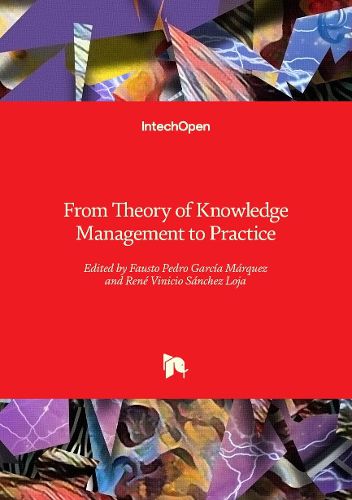Readings Newsletter
Become a Readings Member to make your shopping experience even easier.
Sign in or sign up for free!
You’re not far away from qualifying for FREE standard shipping within Australia
You’ve qualified for FREE standard shipping within Australia
The cart is loading…






This title is printed to order. This book may have been self-published. If so, we cannot guarantee the quality of the content. In the main most books will have gone through the editing process however some may not. We therefore suggest that you be aware of this before ordering this book. If in doubt check either the author or publisher’s details as we are unable to accept any returns unless they are faulty. Please contact us if you have any questions.
From Theory of Knowledge Management to Practice is a collaborative compilation featuring contributions from various authors. The book amalgamates analytical principles with the practical aspects of knowledge management in the business realm. Its unique contribution lies in bridging the gap between engineering/technology disciplines and the organizational, administrative, and planning dimensions of knowledge management. This integration is particularly valuable when viewed in conjunction with other sub-disciplines like economics, finance, marketing, and decision and risk analysis, among others.
The book not only introduces but also illustrates knowledge management theories through practical case studies. These case studies showcase significant outcomes across different sectors, drawing on diverse real-world scenarios. The theoretical framework is accompanied by relevant analytical techniques, adopting a progressive approach that transitions from basic concepts to intricate and dynamic decision-making processes involving multiple data points, including big data and extensive datasets. The integration of computational techniques, dynamic analysis, probabilistic methods, and mathematical optimization further enhances the book's utility, offering expert support for the analysis of multi-criteria decision-making problems characterized by specific constraints and requirements.
$9.00 standard shipping within Australia
FREE standard shipping within Australia for orders over $100.00
Express & International shipping calculated at checkout
This title is printed to order. This book may have been self-published. If so, we cannot guarantee the quality of the content. In the main most books will have gone through the editing process however some may not. We therefore suggest that you be aware of this before ordering this book. If in doubt check either the author or publisher’s details as we are unable to accept any returns unless they are faulty. Please contact us if you have any questions.
From Theory of Knowledge Management to Practice is a collaborative compilation featuring contributions from various authors. The book amalgamates analytical principles with the practical aspects of knowledge management in the business realm. Its unique contribution lies in bridging the gap between engineering/technology disciplines and the organizational, administrative, and planning dimensions of knowledge management. This integration is particularly valuable when viewed in conjunction with other sub-disciplines like economics, finance, marketing, and decision and risk analysis, among others.
The book not only introduces but also illustrates knowledge management theories through practical case studies. These case studies showcase significant outcomes across different sectors, drawing on diverse real-world scenarios. The theoretical framework is accompanied by relevant analytical techniques, adopting a progressive approach that transitions from basic concepts to intricate and dynamic decision-making processes involving multiple data points, including big data and extensive datasets. The integration of computational techniques, dynamic analysis, probabilistic methods, and mathematical optimization further enhances the book's utility, offering expert support for the analysis of multi-criteria decision-making problems characterized by specific constraints and requirements.